What you’ll learn:
- Metformin is a prescription medication typically used to treat diabetes, but it can also support modest, steady weight loss when prescribed off-label.
- Berberine, a plant-based supplement, acts on many of the same metabolic pathways and shows promising effects on blood sugar and weight.
- Metformin’s off-label benefits are well established, and berberine’s growing research highlights its potential as a natural alternative.
People pursue weight loss aids in many forms these days—from FDA-approved medications to supplements. Two names you might be hearing about that haven’t traditionally been associated with weight loss are metformin and berberine. Both are linked to better blood sugar control and modest weight loss in some studies, but they are very different.
- Metformin is a prescription drug originally developed for type 2 diabetes. It helps the body use insulin more effectively and lowers blood sugar levels. While it’s not FDA-approved for weight loss, some healthcare providers prescribe it off-label to help with weight management, particularly for people with insulin resistance.
- Berberine is a plant-derived supplement often marketed as a natural alternative to metformin. It’s not approved by the FDA for any medical purpose. Some studies do suggest that it may modestly affect metabolism and blood sugar, helping people lose weight.
Let’s explore how each works, what the science says about their impact on weight, and where they fit into a safe, sustainable approach to health.
Berberine vs. metformin: How do they work?
Both metformin and berberine can influence metabolism and blood sugar, but the level of evidence behind them is not the same.
Metformin
Metformin has been used for decades to treat type 2 diabetes. It’s undergone extensive clinical testing, and researchers have a clear and detailed understanding of how it works in the body. Metformin improves how your body responds to insulin and reduces the amount of glucose produced by the liver. On a cellular level, it activates AMPK, the body’s built-in energy regulator, which helps cells use glucose more efficiently and may lower inflammation. It also increases natural levels of GLP-1, a hormone that supports appetite and blood sugar control, and even shifts gut bacteria in ways that improve metabolic health.
There are two main forms of metformin:
- Immediate-release (IR) tablets, typically taken several times a day
- Extended-release (ER) tablets, taken once daily, for a gentler effect on digestion. Both forms work through the same mechanisms to stabilize blood sugar, though the ER form is often better tolerated.
Berberine
Berberine is a plant-derived compound found in herbs like goldenseal and barberry. Studies suggest it may influence many of the same pathways as metformin, including AMPK activation, glucose metabolism, and fat processing. It may also affect fat cell formation, increase calorie burning, and significantly alter the gut microbiome. Its precise mechanisms remain unclear, largely because berberine has not been subjected to the same rigorous testing as prescription drugs.
Another challenge: absorption. Less than 1% of berberine taken orally is absorbed into the bloodstream, though certain gut bacteria can convert a portion into a more bioavailable form called dihydroberberine.
In short, while both compounds act on similar metabolic pathways, only metformin’s effects are fully mapped and clinically validated, whereas berberine’s remain promising but less predictable.
Berberine vs. metformin: What are the differences?
Understanding the biggest differences between berberine and metformin can help you make an informed choice about which (if either) may align with your health goals.
Medication vs. supplement
The biggest difference begins with regulation and approval:
- Metformin is an FDA-approved prescription medication that’s been the gold standard for treating type 2 diabetes for decades. It’s prescribed by a healthcare provider and dispensed by a licensed pharmacy.
- Berberine is a dietary supplement you can buy over the counter or online without a prescription. Potency, purity, and effectiveness can vary widely between brands.
Effectiveness and evidence:
When it comes to research, metformin has decades of large-scale clinical trials involving thousands of people. Its effects on blood sugar, insulin sensitivity, and metabolic health are well understood, and doctors have a clear picture of how it works in the body.
Berberine’s research base is much smaller. Some studies suggest it may modestly improve blood sugar control and support weight loss, but these trials are typically short-term, involve fewer people, and vary in quality.
Berberine vs. metformin: What are the similarities?
Even though berberine and metformin come from very different backgrounds, one is a plant-based supplement, the other a prescription medication, they actually share several key similarities that make them popular for supporting metabolic health.
- How you take them: Both are taken orally as pills or capsules.
- How they work: At a cellular level, berberine and metformin appear to share a similar mechanism of action, though one is far more studied than the other. Both activate AMPK, a protein that helps regulate how the body uses and stores energy. This process supports better insulin sensitivity and helps reduce excess glucose production in the liver.
Early findings suggest they may both help improve blood sugar control and support modest weight loss when combined with healthy eating and regular activity. Again, metformin’s effects are well established through decades of research; berberine’s effects are still being explored in smaller studies.
Both also seem to influence the gut microbiome in positive ways—encouraging the growth of beneficial bacteria that play a role in metabolism and inflammation, but again, this relationship is much more clearly understood with metformin than with berberine.
Berberine vs. metformin: Which is better for weight loss?
Both berberine and metformin have been studied for their potential role in weight management, but the evidence is much stronger for metformin. Neither is FDA-approved for weight loss, though metformin is sometimes prescribed off-label for this purpose.
While berberine shows promise as a supplement that may modestly improve metabolism, research on its weight-loss effects remains limited, short-term, and inconsistent.
Metformin studies show modest but reliable weight reduction, especially in people with insulin resistance or type 2 diabetes. Based on current evidence, metformin is the better-studied and more predictable option for supporting weight management, though neither should be viewed as a standalone solution without healthy habits and sustainable behavior change.
How much weight can you lose on berberine vs metformin?
So, how much weight can you really expect to lose with berberine or metformin?
Here’s what you can expect:
- Berberine: A review found that berberine supplementation may lead to an average 2 to 4% reduction in body weight over 8 to 12 weeks, along with improvements in blood sugar and cholesterol. Most studies, like this one, are small and short-term, so the evidence remains promising but preliminary.
- Metformin: A meta-analysis reported that metformin use is associated with up to about 5% weight loss. It’s considered safe for long-term use and particularly effective for people managing insulin resistance or type 2 diabetes.
How long does it take to see results?
The timeline for seeing results depends on your starting weight, overall health, and how consistently you take either option. Here’s what current research suggests:
Berberine:
A study showed that people taking berberine experienced, on average:
- 3% weight loss after 3 months
- 3-4% after 6 months
- 4-5% after 12 months
Metformin:
A long-term study found that people taking metformin for diabetes saw, on average:
- 1-2% weight loss after 3 months
- 2-3% after 6 months
- 3-5% after 12 months
Results can vary from person to person. Diet quality, physical activity, and metabolic health all influence how quickly changes happen. Metformin’s results are generally more predictable, while berberine’s are early-stage and variable.
Who can take berberine or metformin for weight loss?
Before considering either option, it’s important to understand who they’re intended for—and who should avoid them. Both have specific safety considerations that depend on your overall health, medical history, and other medications you may be taking.
Metformin
Metformin is a prescription medication, so you’ll need to talk with a doctor to determine whether it’s appropriate for you for off-label weight loss and to ensure proper dosing and follow-up.
Who might be a candidate:
- People with weight-related health concerns: Metformin is typically prescribed for people with a BMI over 30, or 27 and above if accompanied by related conditions such as high blood pressure, insulin resistance, or type 2 diabetes.
Who should use caution or avoid it:
- People with kidney or liver disease should use metformin only under medical supervision, as these conditions affect how the drug is processed.
- Because metformin can sometimes lower vitamin B12 levels, long-term users may need periodic blood tests.
- Common side effects—like nausea, diarrhea, or mild stomach upset—are usually temporary and improve as your body adjusts.
Learn more: Metformin for weight loss: Benefits & Dosage Guidelines.
Berberine
Berberine is a dietary supplement. If you’re considering taking berberine to lose weight, run it by your doctor or pharmacist first, especially if you’re taking other medications.
Who might be a candidate:
- People with mild insulin resistance or elevated blood sugar who want a complementary, over-the-counter approach.
Who should avoid it:
- Pregnant or breastfeeding people: Berberine may cause the buildup of substances that could harm a developing baby’s brain.
- Children under 18: There isn’t enough research to confirm its safety in young people.
- People taking certain medications: Berberine can interact with blood thinners, diabetes medications (including metformin), and drugs processed by the liver.
Use caution if you:
- Take multiple prescription medications or have ongoing health conditions.
- Experience digestive sensitivity, since berberine may cause cramping or diarrhea, especially when first starting.
If you take metformin or berberine to lose weight, will you need to keep taking them forever?
No, you don’t need to take metformin or berberine forever, but long-term use often leads to better results and helps maintain weight loss.
- Metformin: Research from the Diabetes Prevention Program (DPP) found that people who continued taking metformin maintained modest weight loss and better blood sugar control over several years, while those who stopped often regained weight.
- Berberine: studies typically last 3 to 5 months, and results suggest the strongest benefits appear within the first 90 days. A study found that berberine can support modest BMI reduction and metabolic improvements. Another study showed an average weight loss of 3% of body weight after 3 months, but its effects may taper off over time, and long-term data remain limited.
Neither medication usually requires tapering, but you should always consult your healthcare provider to ensure it’s safe for you. The real key to maintaining results lies in sustainable habits. Combining these treatments with balanced nutrition, regular activity, and behavior support programs like Noom helps you keep the weight off long after you stop the medication.
Metformin vs. berberine: Costs and insurance considerations
When it comes to cost, metformin is a prescription medication, which might be covered by insurance for diabetes, but rarely for weight loss. Berberine is a supplement, so you’ll pay for it entirely out of pocket. Neither is very expensive.
- Metformin (generic): You can pay as low as $4 for certain doses, and between $4-$29 for the extended-release version.
While generic metformin works for most people, some patients may need a branded version if they have digestive side effects or require smoother blood sugar control. Here’s how much branded versions cost:
- Glucophage®: $37 per month
- Glucophage XR®: $42 per month
- Riomet®: $672-$738 per month
- Glumetza®: $3,221-$3,691 per month
- Fortamet®: $4,174-$4,664 per month
- Berberine (supplement): These vary widely in price, ranging from about $12 to $32 for a 60-capsule bottle, depending on the brand, dose, and formulation. Pricing isn’t standardized and can greatly fluctuate depending on the retailer and available discounts. Most products suggest taking 500 mg two to three times daily, though exact dosing depends on the supplement’s strength.
Metformin is covered by nearly all Medicare Part D plans and most private insurance providers when used for diabetes management. Berberine isn’t covered by insurance or Medicare, since it’s classified as a dietary supplement rather than a medication. This means you’ll pay the full retail cost for berberine, which can vary based on brand, dosage, and formulation quality.
Rx weight loss, the right way, with Noom
Get access to prescription weight loss medication with Noom.Berberine vs. Metformin: Side effects and safety
Both berberine and metformin can affect digestion and, in rare cases, cause more serious reactions, but their risks and regulation differ.
Knowing how each one may impact your body, from common stomach issues to potential drug interactions or deficiencies, can help you use them safely.
Side effects: Metformin
Digestive discomfort is the most frequent issue with metformin, including nausea, diarrhea, bloating, or stomach cramps. These symptoms are usually temporary and improve when the medication is taken with food or switched to an extended-release (ER) formulation.
Serious side effects are rare but can include lactic acidosis, a potentially life-threatening buildup of lactic acid in the blood that occurs mostly in people with severe kidney impairment or poor oxygen circulation. It can also cause allergic reactions such as rash, itching, or swelling. Over time, some people may develop a vitamin B12 deficiency or experience worsening kidney problems, especially if they already have underlying kidney disease.
Learn more about metformin side effects.
Side effects: Berberine
Because berberine is available in many forms, including pills, teas, patches, and gummies, its dosing and effects can vary depending on whether it’s taken alone or in a blend with other ingredients. When used by itself, it may cause mild stomach issues like constipation, cramping, or diarrhea, especially at higher doses. It’s important to use caution and check labels carefully to know exactly what’s in your supplement.
Severe reactions are uncommon, but drug interactions can occur because berberine affects liver enzymes (CYPs and P-gp). It may amplify the effects of blood thinners and diabetes medications, including metformin, and some antihypertensives.
Learn more about using berberine for weight loss.
Berberine vs. Metformin: Which one is safer?
When it comes to safety, metformin has a stronger track record. It’s been prescribed for decades, studied in thousands of people, and carries predictable, well-documented side effects.
Berberine, while generally tolerated short-term in healthy adults, isn’t regulated the same way and doesn’t have robust long-term data, so we can’t know all possible side effects. And, again, herbal blends have various ingredients. Your best bet is to buy from verified, third-party–tested sources and read labels carefully.
Talk with your healthcare provider first, especially if you have underlying health conditions or take other medications.
Berberine vs. Metformin: Dosage and administration
While both berberine and metformin can support similar goals, how they’re taken and how doses are adjusted over time differ quite a bit. Metformin follows a clear dosage guide set by healthcare providers, with gradual adjustments based on blood sugar control and tolerance. There is no strict dose of berberine. Suggested dosing can vary widely depending on the brand, form, and whether it’s part of a blend.
Doctors start with a low dose and increase gradually to improve tolerance. The most common starting dose is 500 mg once or twice daily for the immediate-release version, or 500 to 1,000 mg once daily for the extended-release (ER) form.
Doses are typically increased every 1 to 2 weeks, depending on how your body responds and how well your stomach tolerates it. Metformin is best taken with food to minimize digestive upset, two to three times daily for the immediate-release version, or once daily (often with dinner) for ER tablets. The maximum recommended dose is usually 2,550 mg per day for immediate-release and 2,000 mg per day for extended-release formulations.
Dosing for weight loss will depend on your doctor’s guidance and individual response, since metformin is not officially approved for that purpose.
Berberine
Dosing for berberine varies since it’s sold as a supplement rather than a prescription medication. Most clinical studies have used 500 mg two to three times per day, totaling about 1,000 to 1,500 mg daily.
There’s no officially established maximum dose, but most people tolerate up to 1,500 mg per day when taken in divided doses with meals. Because supplement quality and strength can vary by brand, it’s best to follow product-specific instructions and consult a healthcare provider before adjusting your dose.
Metformin vs. berberine: Which is right for me?
If you’re deciding between metformin and berberine, the best option often comes down to cost, coverage, and your health needs.
| Factor | Metformin | Berberine |
|---|---|---|
| Effectiveness | People lost around 3 to 5% of their body weight after 52 weeks | People lost around 2 to 4% of their body weight over 8 to 12 weeks. *Research is limited, and large-scale and long-term studies aren’t yet available. |
| Administration | Oral tablet taken once or twice daily with food for immediate-release or once daily for extended-release (ER). | Available as capsules, teas, gummies, or patches; usually 500 mg two to three times daily with meals. |
| Pricing per month (without insurance) | Available for as low as $4 for the generic version | Available for as low as $11, depending on the retailer |
| FDA approval and uses | FDA-approved for type 2 diabetes; used off-label for weight loss | Not FDA-approved; sold as a dietary supplement for metabolism, cholesterol, and blood sugar balance. |
| Insurance coverage | Covered by most insurance plans and Medicare for diabetes, not for weight loss | Not covered by insurance |
The bottom line: Medication vs. supplement
Metformin and berberine can both support modest weight loss, but they’re not interchangeable. Metformin has decades of research, predictable effects, and well-established safety data, making it a reliable option, especially for people with insulin resistance or type 2 diabetes. Berberine shows promising early results, but its long-term effectiveness, ideal dosing, and safety are still being studied, and supplement quality can vary. If weight loss is your primary goal, think of either option as a support tool—not a replacement for sustainable habits.
Ultimately, the best choice depends on your personal health goals, medical history, and the guidance of a qualified healthcare provider. No pill or supplement can replace the fundamentals of healthy living, but the right medical support might make those lifestyle changes more effective and sustainable.
If you’re interested in exploring weight loss options, see if you qualify for Noom Med. If so, you’ll be matched with licensed clinicians who can help determine whether prescription medication could support your goals and prescribe it if appropriate. Alongside that, you’ll gain access to Noom’s full suite of tools, from recipes and habit tracking to fitness guidance and behavioral coaching, to help you build lasting habits and achieve real results.
Note: Metformin is not FDA-approved to treat obesity or for weight loss.
Why you can trust us
At Noom, we’re committed to providing health information that’s grounded in reliable science and expert review. Our content is created with the support of qualified professionals and based on well-established research from trusted medical and scientific organizations. Learn more about the experts behind our content on our Health Expert Team page.



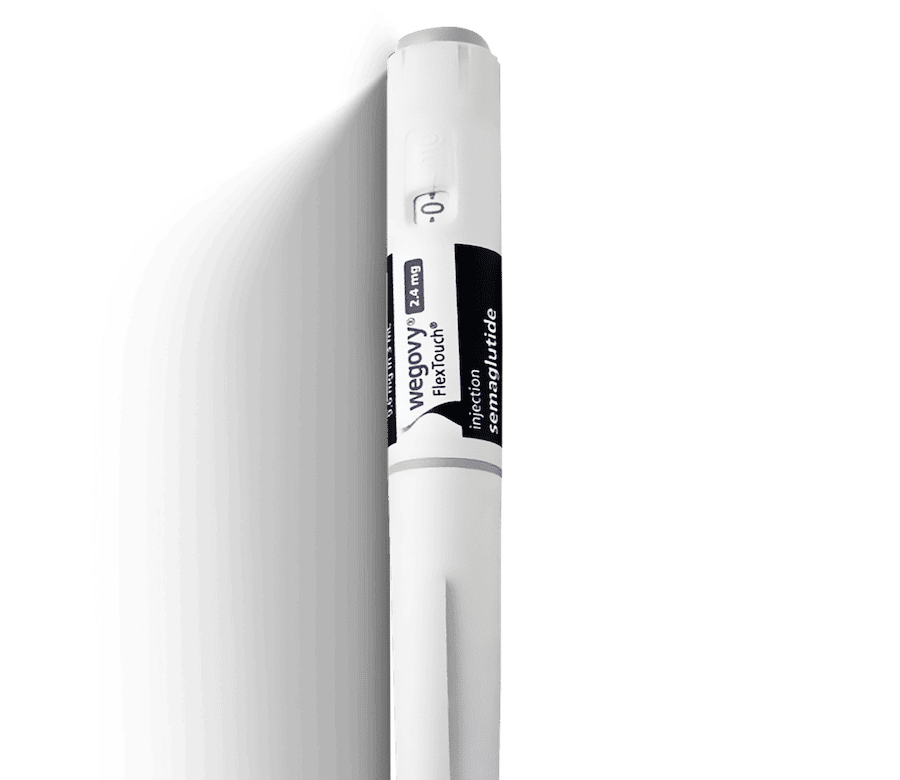

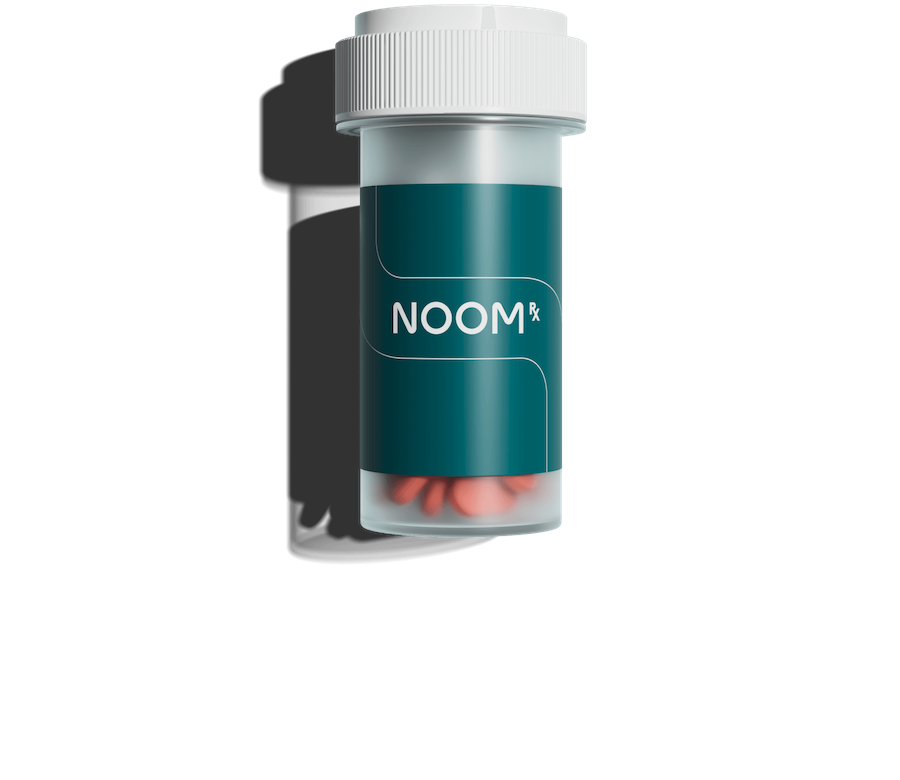
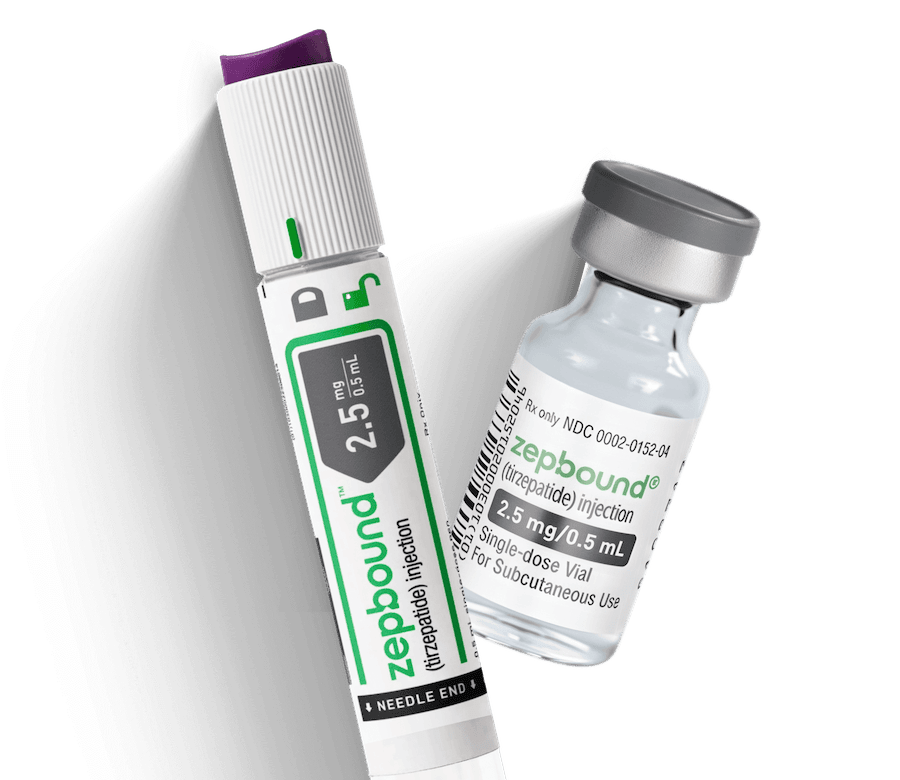
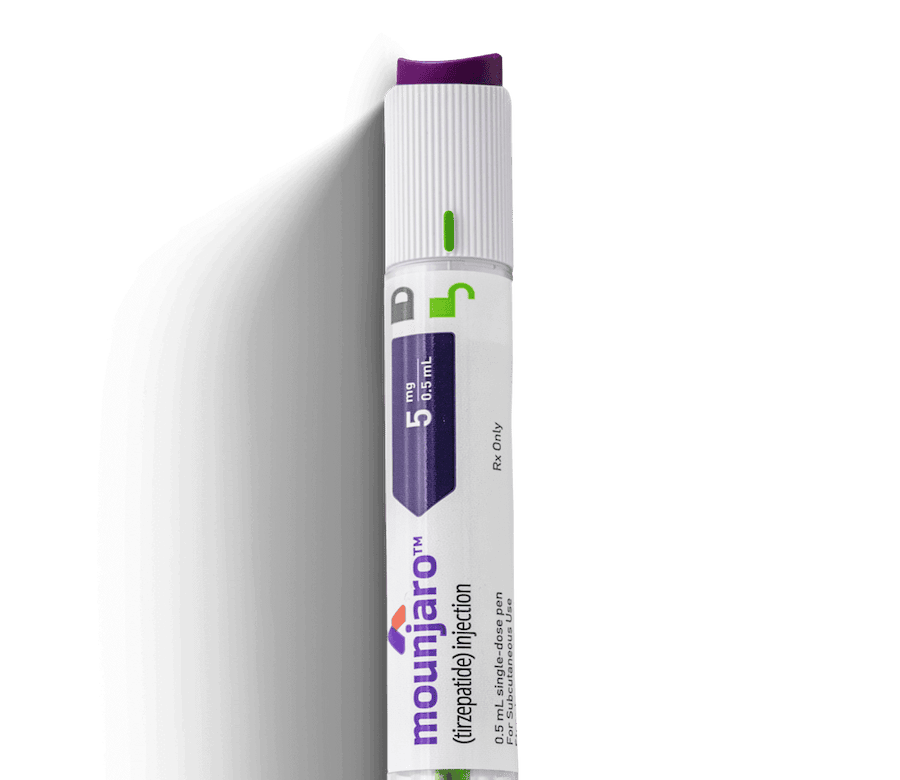
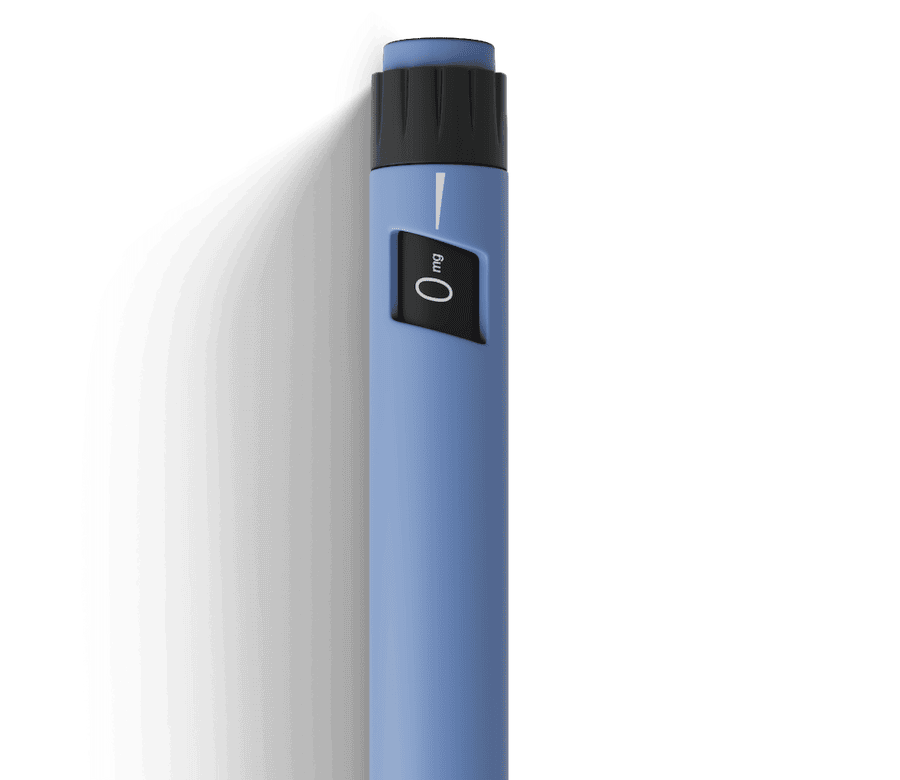



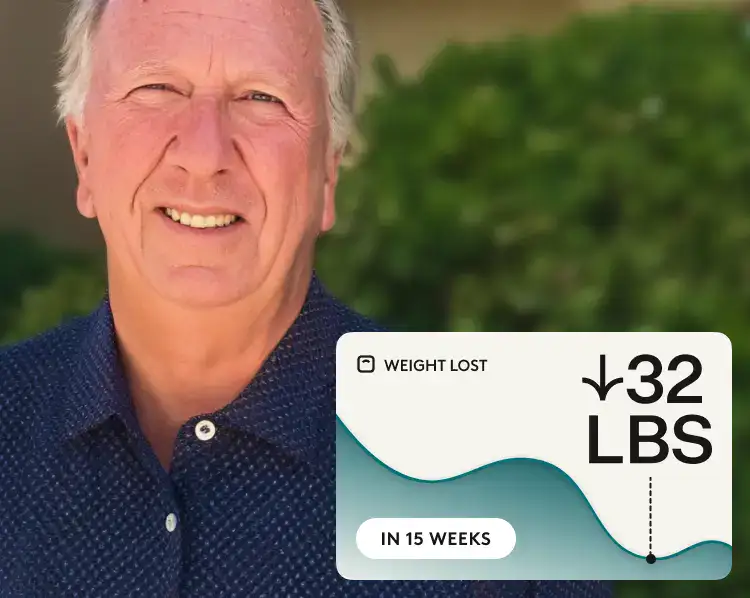








 Noom Team
Noom Team
 Shoshana Fishbein
Shoshana Fishbein


 Meaghan Cameron
Meaghan Cameron
